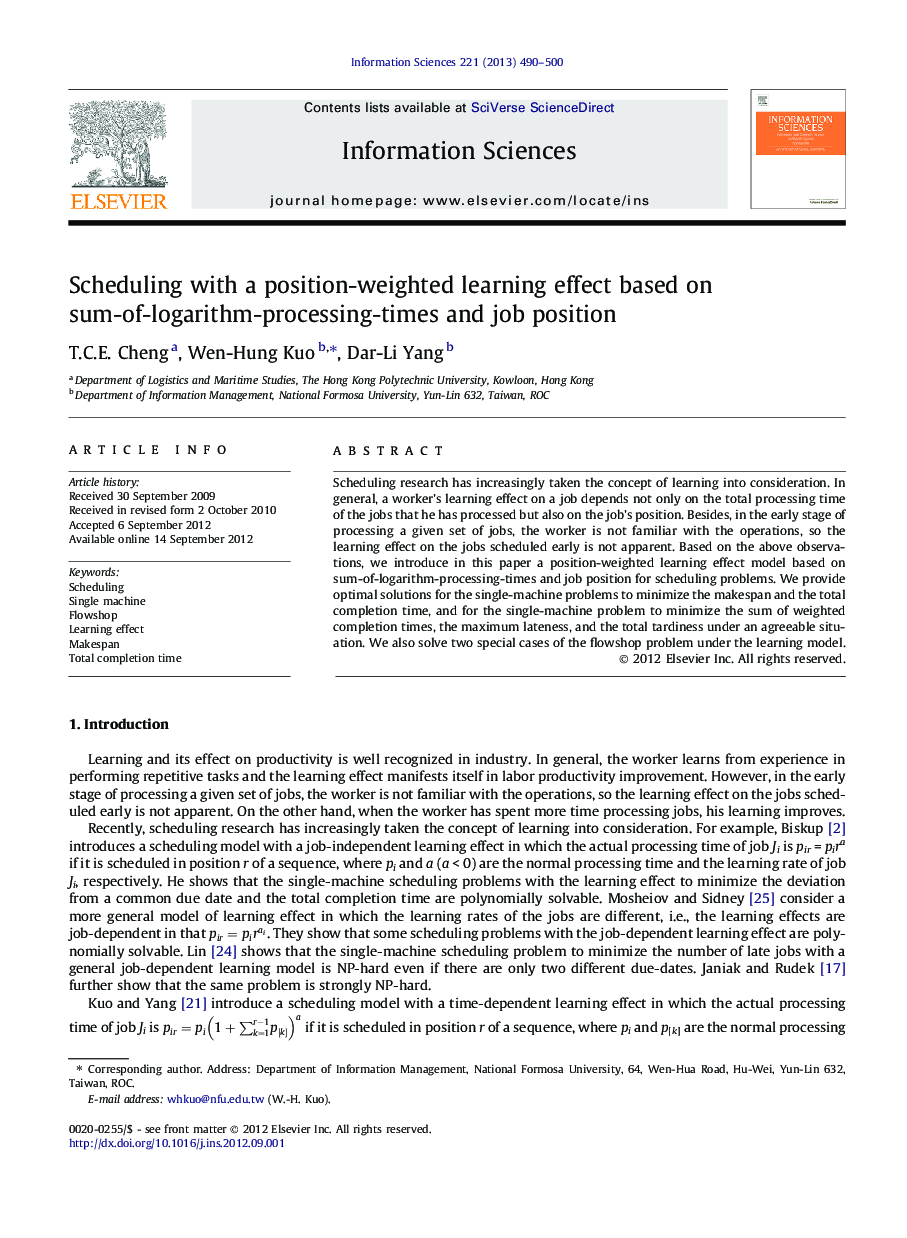| Article ID | Journal | Published Year | Pages | File Type |
|---|---|---|---|---|
| 392512 | Information Sciences | 2013 | 11 Pages |
Scheduling research has increasingly taken the concept of learning into consideration. In general, a worker’s learning effect on a job depends not only on the total processing time of the jobs that he has processed but also on the job’s position. Besides, in the early stage of processing a given set of jobs, the worker is not familiar with the operations, so the learning effect on the jobs scheduled early is not apparent. Based on the above observations, we introduce in this paper a position-weighted learning effect model based on sum-of-logarithm-processing-times and job position for scheduling problems. We provide optimal solutions for the single-machine problems to minimize the makespan and the total completion time, and for the single-machine problem to minimize the sum of weighted completion times, the maximum lateness, and the total tardiness under an agreeable situation. We also solve two special cases of the flowshop problem under the learning model.
